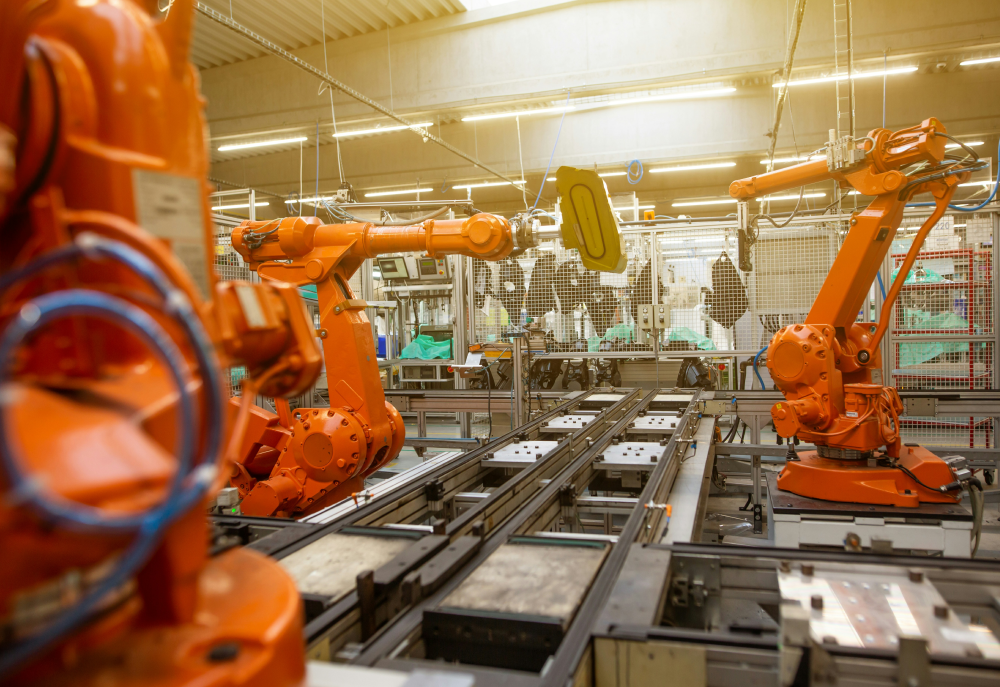In today’s competitive industrial landscape, digitalization and real-time production analysis have become indispensable tools for improving efficiency, reducing costs, and increasing production quality. Implementing these technologies can be a significant challenge, requiring meticulous planning and execution. This article discusses the importance of rapid digitalization and return on investment (ROI) through pilot projects and scalable solutions as catalysts for achieving profits and sustainable growth.
The Importance of Rapid Digitalization and ROI
Achieving a rapid return on investment (ROI) in digitalization projects is essential for ensuring sustainability and a positive impact on profitability. By implementing pilot projects or phased approaches with platforms like proGrow, manufacturers can quickly test and scale digitalization efforts compared to traditional processes of requirement definition and implementation, which take months. This approach enables faster ROI and reduces associated risks.
Exponential Returns from Successful Implementation
Effective implementation of digitalization and real-time analysis projects can result in exponential returns, as improved efficiency and quality translate into cost reductions and increased revenues that can be reinvested in new projects. By achieving rapid ROI in initial pilot projects, manufacturers can build momentum and support for broader digitalization efforts, such as predictive maintenance, autonomous operations, and smart factories. These initiatives can generate even greater returns, further enhancing efficiency and quality while driving innovation and growth.
Optimizing Efficiency with proGrow: Real-Time Production Analysis and Machine Integration
proGrow, an advanced shopfloor digitalization and analysis solution, enables manufacturers to achieve sustainable growth by maximizing efficiency, minimizing costs, and improving product quality. Leveraging real-time production analysis and its integrations, proGrow collects and consolidates data from various sources, such as management systems, production equipment, and sensors, providing a comprehensive view of operations and identifying opportunities for improvement. This holistic approach facilitates informed decision-making and process optimization, leading to increased efficiency and laying the foundation for broader digitalization initiatives. With a focus on pilot projects delivering rapid ROI and scalable solutions, proGrow helps manufacturers gain momentum for continuous innovation and growth.
A Practical Scenario with proGrow
A food processing company with annual revenues of €50 million implements proGrow to monitor and optimize its production process. proGrow integrates data from ERP systems, packaging machines, sensors along the process line, and quality control equipment, providing a complete view of the production process. By monitoring KPIs such as production rate (productivity) (10,000 units per hour), waste generation (quality rate) (2% of produced units), and equipment utilization (performance) (85%), the company identifies a mismatch in the packaging machine's speed with the preceding production line, causing bottlenecks, intermediate stock, and waste. Real-time monitoring reveals this occurs when the production line operates at its maximum capacity of 12,000 units per hour. The manufacturer adjusts the machine's speed configuration to match the production line, ensuring a continuous production flow without intermediate stock.As a result, production productivity increases by 10%, waste generation drops to 1%, and equipment utilization rises to 95%. This efficiency improvement leads to an estimated annual cost reduction of €500,000. The implementation of real-time production analysis with machine integration results in a rapid ROI, with the project paid off within a few months. This success paves the way for broader digitalization initiatives, such as advanced production planning and process automation, further optimizing operations and driving growth.
Conclusion
By harnessing the power of real-time production analysis with machine integration, manufacturers can optimize production processes, enhance efficiency, and drive innovation. Implementing these digitalization strategies allows them to achieve rapid ROI and pave the way for sustainable growth and success in a competitive market. By focusing on quick wins and leveraging platforms like proGrow, manufacturers can continuously adapt and evolve, ensuring competitiveness and long-term growth.




